Curated OER
Science Fiction
Do your sixth graders like science fiction? Learn to identify elements of the science fiction genre with a literature lesson. They read from Only You Can Save Mankind and identify the objects, words, and characters from the scenarios....
Curated OER
Fruit or Vegetable?
Watermelon is a vegetable? A tomato is a fruit? Believe it or not, this debate is decades old. Groups examine rulings by the US Supreme Court, the USDA, and state statutes before developing their own criteria to use when labeling the...
Curated OER
A Tough Nut to Crack
Children, based on a set of criteria, evaluate the quality of pecans. They research recorded history of pecan trees as well as how their seeds moved across western Missouri into southeastern Kansas, Oklahoma, Texas and Mexico. In...
Curated OER
DNA Blueprint for Life
Did you know that meat tenderizers contain DNA cutting enzimes? Did you know that you can isolate your own DNA? Or the DNA of fruit? Explore with your learners the DNA world with a series of experiments using readily available materials...
Curated OER
Determine the Meaning of Unknown Words
Sixth graders explore the meanings of unknown words in science fiction. In this language arts lesson, 6th graders participate in a game of Balderdash and guess the meanings of given words. Students discuss how to use context clues to...
Curated OER
Identifying Symbols
Identify symbols within text and explain what they mean. Sixth graders examine Home of the Brave and identify recurring pictures in the text and discuss what they mean. They then choose a symbol from the text and explain what it means...
Curated OER
Circles in the Landscape: Irrigating Oklahoma Crops
How do you grow crops in a area with insufficient rainfall? Why you irrigate, of course. Class members investigate irrigation systems by designing a system of their own. After examining irrigation related concepts, vocabulary terms, and...
T. Smith Publishing
Solar System Fun
Looking for some vocabulary for your unit on space? Check out this 25-word solar system crossword puzzle for ideas. There is no word bank for this puzzle, so pupils will either need prior instruction or a reference material that they can...
Curated OER
Are You Thirsty? The Effects of Pollution on Drinking Water
Discuss the availability of clean, plentiful water and the causes of water pollution. In groups, sixth graders discuss problem-solving methods for keeping water clean. They explore the function of water treatment plants and perform...
Curated OER
Just Lookin' For a Home
What is a boll weevil? Your class can find out that and more by following the activities included here. Pupils read an article, sing a boll weevil song, add to the song with their own original lyrics, illustrate the song, study the...
T. Smith Publishing
Types of Energy Word Search
Intended for science instruction, this word search could be used to reinforce vocabulary. Class members find the following words: electrical, potential, heat, chemical, gravitational, kinetic, mechanical, nuclear, and radiant. While the...
ReadWriteThink
Read Write Think: Solving Word Meanings: Engaging Strategies for Vocabulary Dev.
A 5-lesson unit where students learn to use context clues and semantic gradients together to determine the meanings of unfamiliar words.
ClassFlow
Class Flow: Context Clues
[Free Registration/Login Required] This flipchart gives students practice using context to determine the meaning of an unfamiliar word. Included are practice activities and assessment pages.
Sophia Learning
Sophia: Using Sentence Structure (Part of Speech)
This slideshow lesson focuses on using sentence structure and parts of speech to determine the meaning of unfamiliar words. It explains how to look for parentheses or commas after unfamiliar words to help determine meaning; it also shows...
McGraw Hill
Mc Graw Hill: Vocabulary Acquisition and Use: Use Context Clues
See models of different types of context clues, and practice finding meanings of words in context.
Texas Education Agency
Texas Gateway: Understanding New Vocabulary Within Context
Learn how to find the meanings of words through analogy and other word relationships.
Texas Education Agency
Texas Gateway: Understand New Vocabulary Within Context (English 6 Reading)
You will learn how to use context (e.g., cause and effect or compare and contrast organizational text structures) to determine or clarify the meaning of unfamiliar or multiple-meaning words.
Texas Education Agency
Texas Gateway: Understand New Vocabulary Within Context (English 7 Reading)
You will learn how to determine or clarify the meaning of words using context within a sentence and in larger sections of text.
Merriam-Webster
Merriam Webster: Word of the Day
This daily resource gives the word for the day, definition, example sentence and a "Did you know?" about the word.
Texas Education Agency
Texas Gateway: Vocabulary: Understand New Vocabulary Within Context
A learning module that teaches students how to use context clues to understand new vocabulary words with six mini-lessons: Introduction, The Clues in Context, General/Inferential Context Clues, Definitions/Example Context Clues, Synonym...
Capital Community College Foundation
Guide to Grammar and Writing: Recognizing the Function of Phrases
In this quiz, students read the sentence, determine the function of the group of words in all capitals and select the correct answer. Java is required.
Writing Fix
Writing Fix: Responding to Comparison/contrast: Word Splash Sentences [Pdf]
In this PDF comparison/contrast lesson plan, students learn a word splash writing activity which asks students to craft meaningful sentences that utilize content vocabulary words. Students-alone or in groups-examine a collection of...
Writing Fix
Writing Fix: Painting Places With Words
In this lesson students learn how to paint a setting with their descriptive choice of words.
English for Everyone
English for Everyone: Sentence Completion 2: Level 5 [Pdf]
English for Everyone provides a printable quiz to assess Level 5 vocabulary. Students will use context clues to place words, or word pairs, into compound and complex sentences.


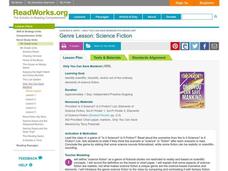


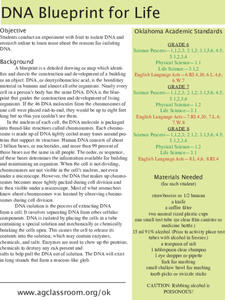







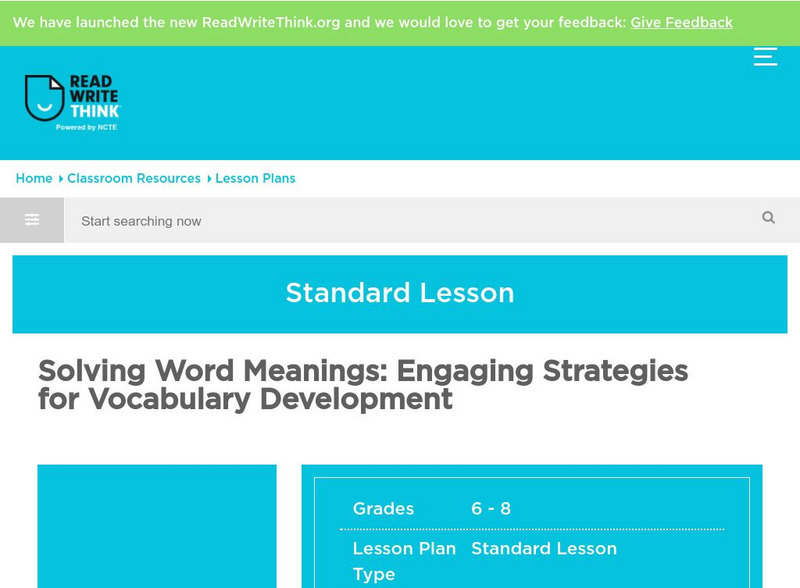





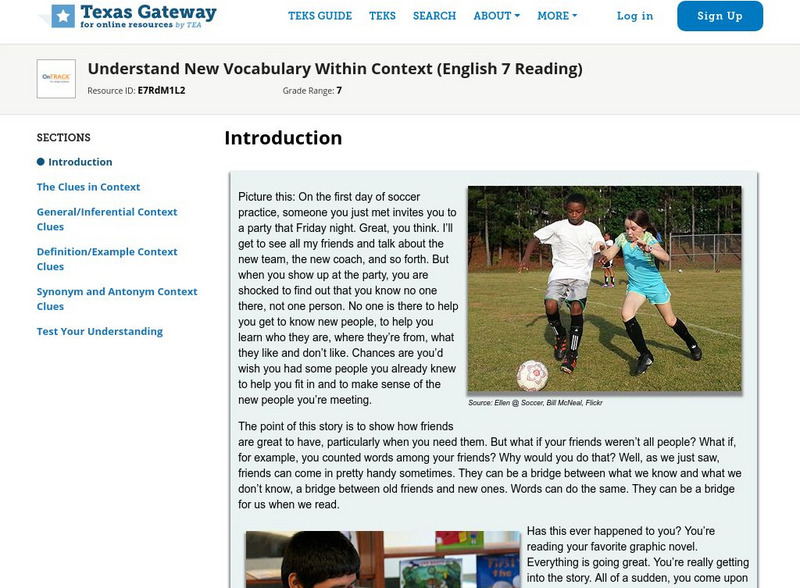

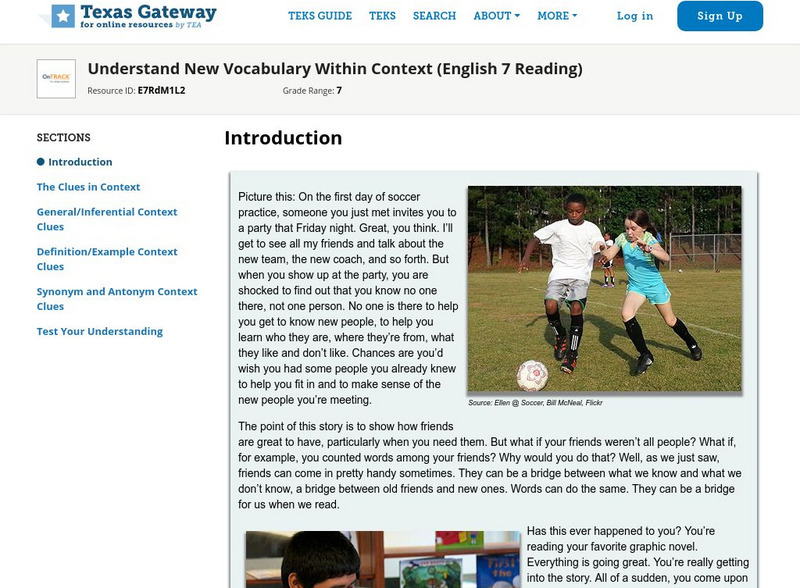

![Writing Fix: Responding to Comparison/contrast: Word Splash Sentences [Pdf] Lesson Plan Writing Fix: Responding to Comparison/contrast: Word Splash Sentences [Pdf] Lesson Plan](https://d15y2dacu3jp90.cloudfront.net/images/attachment_defaults/resource/large/FPO-knovation.png)
